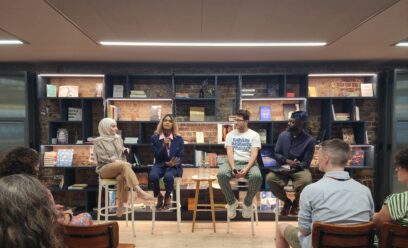IMIX’s safeguarding checklist for media interviews
Posted by Julia Rampen on September 8, 2021One of our roles at IMIX is matching people with experience of asylum who want to tell their story with journalists interested in writing about it.
We know from research and professional experience that readers are most likely to engage with an issue if they hear from someone who has been personally affected talking about what it means to them.
However, like any match-making exercise, getting this right can be tricky. While we’re very careful about the journalists we work with, all the individuals we support to tell their stories have different personal and security concerns to juggle. The last thing anyone wants (including the journalist) is for them to share their story and later regret it.
That’s why an important part of connecting someone with a journalist is having a safeguarding conversation first. Many organisations already have safeguarding checklists, based on their own experience of what works well for the people in their networks.
The following safeguarding list is therefore by no means exhaustive, but it’s one we’ve tried and tested. It’s designed to be short enough to be discussed over the phone. You are welcome to use it and build on it.
-
Are you happy to speak to a journalist from X organisation? (Explain in detail if necessary)
-
Do you understand what ‘on the record’ means? (Explain in detail if necessary)*
-
Do you understand that once a media piece is published, it is not possible take it down?
-
Do you understand you can stop the interview at any point?
-
Do you have legal status in the UK? (If not, discuss the option of being anonymous)
-
What do you want to get out of the interview?
-
Would you be willing to be named and pictured?
-
Is there anything you definitely don’t want to be asked about?
-
Are there any sensitive personal details that could put you, a family member or friend at risk?
-
Are you aware that this interview may go online and could be read outside the UK?
-
News stories attracts social media comments, including some from trolls. We generally advise people to ignore these, but not everyone can. Does this change how you feel about doing the interview?
-
Is there anything else we should know before putting you in touch with a journalist?




